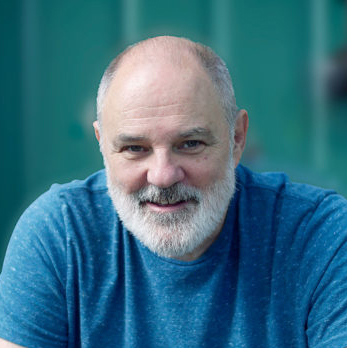Correction appended below.
Last month, a young reporter e-mailed me to ask for information about “Writers @ Work: A Process Approach,” a four-week online course first offered last fall by News University, Poynter’s distance learning program. It’s scheduled again this year for October 15 to November 9.
The heart of the course lies in this premise: Good writing may be magic, but it’s not magical. It’s a series of steps and decisions that every writer makes, whatever the genre, length and deadline. Learn these steps and the techniques that buttress them, and you will become a better, more reflective journalist.
Guided by that philosophy, journalists can understand what actions and conditions lead to successful stories, thus increasing the chance to repeat the success in future stories. For the last 25 years, it’s been my mission to share that powerful message and its practical application to the craft of reporting and writing.
Usually, I do so in a one- to three-hour session during a Poynter seminar, at writing workshops in newsrooms where I consult or at National Writers Workshops and other conferences.
It’s never enough time.
But a year ago, I got the chance to expand my teaching on the subject in an online format designed to provide journalists with more time to learn and apply the writing process approach. The vehicle was NewsU’s four-week “Writers @ Work: The Process Approach to Reporting and Writing.”
Interactive learning producer Casey Frechette and I developed the course so that journalists could take part without the time, travel and expense of a seminar at Poynter. The course is semi-synchronous, which means that students generally decide when and how they engage with the lessons, although there are a few occasions when the entire class comes together in a virtual classroom setting.
Time zones can interfere with that goal. When that happens, we make every attempt to be as flexible as possible and to offer the session(s) more than once, so that everyone will have an opportunity to attend. For those who still can’t make it, sessions are archived so they can be accessed at the participant’s convenience.
Now, for a course fee of $395, participants get to spend four weeks learning the individual steps of the process, and practical techniques to apply them to their own work.
Course Highlights
We will focus intensely on the six steps of the writing process:
1. Story idea or assignment
2. Reporting
3. Finding the focus of stories
4. Organizing your stories
5. Drafting your stories
6. Revising your stories
For each step we’ll provide readings, exercises and techniques that can be applied to stories you’re working on and to future assignments.
The course employs a variety of technologies to present materials, including:
- Video
- Podcasts
- Interactive exercises, including a specially designed “Focus Finder” that enables you to discover the theme of your story in less than two minutes.
- Even a YouTube video
- A course blog that enables participants to connect with each other so they can share lessons learned
Coaching
The course offers each participant three 30-minute phone conversations during which we’ll discuss what works and what needs work in his or her reporting and writing. These conversations focus on individual stories in the process of creation.
Because the course is semi-synchronous, you can log on at any time that’s convenient for you. There will probably be a couple of times when all participants are asked to be online at the same time for a live session.
So, back to that young reporter who e-mailed me. “What is the experience level of the people you typically accept?” she wanted to know. She had four years on the job at a 30,000 circulation daily.
My reply: The participants in last year’s inaugural course ranged from papers smaller than yours to some larger. Some participants had fewer years in the business than you; some had more.
“What’s the time commitment during the seminar, as in, how often are you logging on for lessons or reading for the class?” she asked.
Because this is a self-directed course, the most salient question is how much time you can and want to devote. The time commitment is up to each participant; of course, the greater the commitment the more exposure you’ll have to the lessons and practical methods for putting those lessons into practice. Each section includes assignments: reading, writing, comments on the blog, watching and listening to video and podcasts. Again, it’s your choice. There are no grades, no tests. We’ve designed a course that we hope will make you want to spend time. There is no doubt that those who engaged more frequently with the course last year seemed to get the most out of it.
So here’s the bottom line:
How would you like
- To spend four weeks studying at Poynter without leaving your desk?
- To put into practice immediately the lessons you learn about good reporting and writing during that month?
- Three individual coaching sessions with me about your work?
- To join a community of self-learners?
- And to do it all on your timetable?
If this appeals to you, let me invite you to join us for “Writers @ Work: The Process Approach to Reporting and Writing.” The deadline for applications is September 17.
CORRECTION: An earlier version of this column provided an incorrect application deadline.






